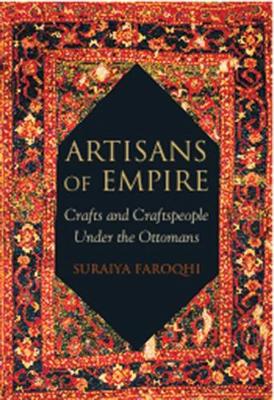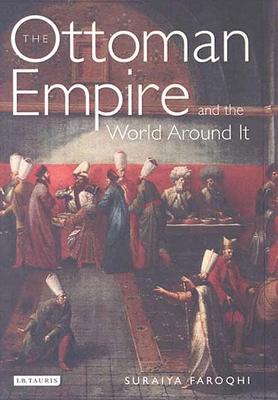Library of Ottoman Studies
2 total works
The manufacture and trade in crafted goods and the men and women who were involved in this industry - including metalworkers, ceramicists, silk weavers, fez-makers, blacksmiths and even barbers - lay at the social as well as the economic heart of the Ottoman empire. This comprehensive history by leading Ottoman historian Suraiya Faroqhi presents the definitive view of the subject, from the production and distribution of different craft objects to their use and enjoyment within the community.Succinct yet comprehensive, "Artisans of Empire" analyses the production and trade of crafts from the beginning of the 16th century to the early 20th century, focusing on its history, politics and culture. Production methods, the organisation of trade guilds, religious differences, the contribution of women and the structure of the Ottoman economy all come under scrutiny in this wide-ranging history that combines keen analysis with descriptions of the beautiful and sometimes unknown works of Ottoman artisans. Faroqhi sheds new light on all aspects of artisan life, setting the concerns of individual craftsmen within the context of the broader cultural themes that connect them to the wider world.
Combining social, cultural, economic, religious and historiographical insights, this will be the authoritative work on Ottoman artisans and guilds for many years to come.
Combining social, cultural, economic, religious and historiographical insights, this will be the authoritative work on Ottoman artisans and guilds for many years to come.
v. 7
The first paperback edition, in line with latest historiography - "Ottoman Empire" is a major and advanced early modern power, this book is based on a huge study of original sources and personal accounts. The author leading historian of early modern Ottoman Empire in all aspects - political, economic, diplomatic and cultural. In Islamic law the world was made up of the House of Islam and the House of War with the Ottoman Sultan - the perceived successor to the Caliphs - supreme ruler of the Islamic world. However, Suraiya Faroqhi demonstrates that there was no iron curtain between the Ottoman and other worlds but rather a long-established network of diplomatic, financial, cultural and religious connections. These extended to the empires of Asia and the modern states of Europe. Faroqhi's book is based on a huge study of original and early modern sources, including diplomatic records, travel and geographical writing, as well as personal accounts. Its breadth and originality will make it essential reading for historians of Europe and the Middle East.

